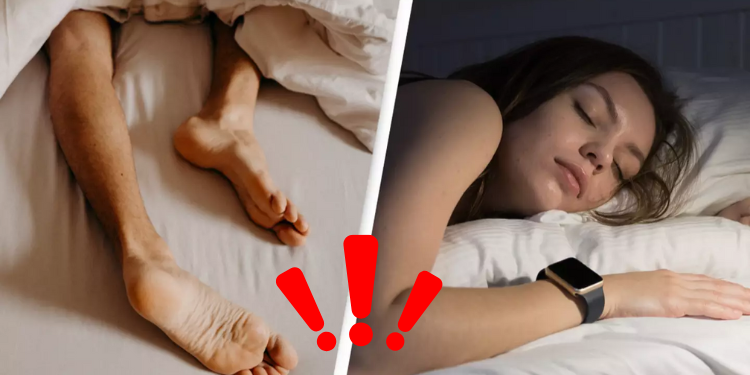Have you ever been on the edge of sleep, only to be jolted awake by a sudden twitch or jerk of your body?
Maybe it felt like you were falling, tripping, or even kicking something imaginary.
If this sounds familiar, you’re not alone—and there’s a scientific explanation behind it.
These mysterious movements are known as hypnic jerks or sleep starts, and they’re more common than you might think.
What Are Hypnic Jerks?
Hypnic jerks are involuntary muscle contractions that occur as you transition from wakefulness to sleep. They typically happen during the early stages of sleep, often when your body is just beginning to relax.
According to sleep experts, up to 70% of people experience these twitches at some point in their lives. While they can feel startling—or even a little embarrassing if you’re sharing a bed—they’re usually harmless.
The sensation might come with a vivid mental image, like stumbling off a curb or falling from a height. This is why some people wake up with their heart racing, wondering what just happened. But don’t worry—it’s not a sign of something sinister.
Why Does It Happen?
Scientists aren’t entirely sure what causes hypnic jerks, but they have a few solid theories:
- Your Brain Misinterprets Relaxation
As you drift off, your muscles relax, and your breathing slows. Sometimes, your brain misreads this sudden drop in activity as a signal that you’re falling. In response, it sends a quick jolt to your muscles to “catch” you—hence the twitch. - A Transition Glitch
Sleep is a complex process where your brain hands over control from the awake, alert state to the resting state. Hypnic jerks might be a hiccup in this handover, like a gear slipping as your body shifts into sleep mode. - Caffeine, Stress, or Fatigue
Ever notice these jerks more when you’re exhausted or wired from coffee? Stimulants like caffeine, high stress levels, or lack of sleep can make your nervous system more prone to these spasms. Your brain might struggle to wind down, leading to those unexpected twitches.
Is It Normal—or a Problem?
For most people, hypnic jerks are perfectly normal and nothing to worry about. They’re just a quirky feature of how our bodies and brains work.
However, if they’re frequent, intense, or paired with other symptoms—like trouble sleeping or daytime fatigue—it might be worth chatting with a doctor.
In rare cases, excessive jerking could point to a sleep disorder like restless leg syndrome or periodic limb movement disorder.
How to Reduce Hypnic Jerks
If these sleep starts are bugging you, there are a few tricks to try:
- Cut Back on Caffeine: Skip that late-afternoon coffee or energy drink.
- Wind Down Before Bed: A calming routine—like reading or meditating—can ease your brain into sleep mode.
- Get More Rest: Aim for consistent, quality sleep to keep your nervous system happy.
So, the next time your body twitches as you’re falling asleep, don’t panic—it’s just your brain doing a little midnight maintenance.
Hypnic jerks are a natural, quirky part of the sleep process for most people.
Embrace them as a sign you’re drifting off, and let them remind you that even your body has its own way of saying goodnight.

